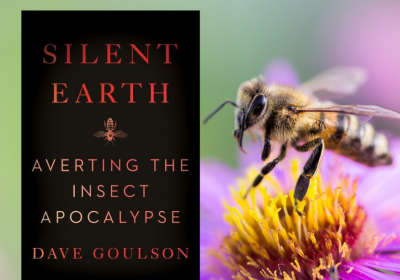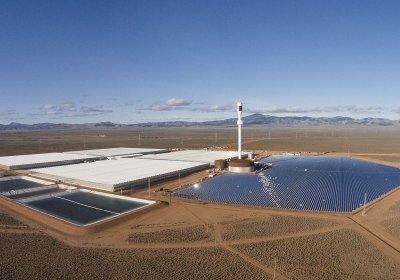What was supposed to be the Western Grassland Reserves, to secure the conservation of some critically endangered ecosystems, is being illegally bulldozed. Ben Courtice argues it makes no sense.
Ben Courtice
Phil Sutton liked to define the big picture goals and “backcast”, instead of forecast, what would be needed to get there from here. Ben Courtice reflects on his contribution to the climate change movement.
Silent Earth describes the crisis of declining insect populations, but Ben Courtice writes that it falls short on the solutions required to turn this around.
The federal government's National Energy Guarantee (NEG) policy, which was announced last year, was given provisional approval by state governments at the Council of Australian Governments (COAG) meeting in April, subject to further negotiation on details, including the emissions targets. What does this mean for renewable energy and climate action, key issues affected by Australia's coal-dominated electricity grid?
As a kid, the way I was taught about Indigenous people was terrible. For one thing, the understanding of the Indigenous economy and technology was non-existent.
I had this picture of people living in homes basically made of a bit of bark and maybe grass and sticks leaned up against a tree trunk. The impression was they spent their time wandering around and occasionally spearing a kangaroo or goanna for dinner.
Over the years I picked up bits and pieces of a more realistic and less insulting picture of Indigenous life, but it wasn’t really until I read Dark Emu by Bruce Pascoe that it all fell into place such that I can maybe imagine in some detail how people lived.
Seven years after he launched a ground-breaking study showing how Australia could re-power with 100% renewable energy by 2020, Malcolm Turnbull, now Prime Minister, has announced a “National Energy Guarantee” (NEG) policy that will have no renewable energy target.
In the three months to June, Australia's greenhouse gas emissions reached a record level, with the annual emissions on track to surpass the previous peak in 2009, according to the latest National Energy Emissions Audit published by The Australia Institute.
Many environmentalists were disappointed, if not outraged, at Chief Scientist Alan Finkel’s Independent Review into the Future Security of the National Electricity Market, released on June 9, which sought to stabilise the existing electricity market.
At the same time, the failure of the privatised and deregulated electricity grid led NSW Greens MP Jeremy Buckingham to call for its nationalisation as the only way to solve its intractable problems.
Victoria’s Labor government voted down the “#MetreMatters” bill on May 10 which would have required motorists to give cyclists at least 1 metre of space when passing. Earlier in the day, Greens MPs had moved the bill in the upper house, where it passed with the support of Coalition MPs.
According to the Australian Energy Market Operator (AEMO), electricity supply will be threatened as early as next year by “shortfalls in gas”, or failing that, households may face cuts to their gas supply.
With the passage of the Climate Change Act (CCA) that mandates a target of zero net emissions by 2050, Victoria is formally in the leadership among state and federal governments.
“How can Shadow Minister for Renewables David Southwick continue to hold his title while opposing investment in wind and solar?” asked Friends of the Earth renewables campaigner Pat Simons after the Victorian Liberals declared they would abolish the state renewable energy target if elected.
Protesters gathered outside his Caulfield offices on February 14 with a banner reading “Shadow Minister against renewables” and also outside state Opposition leader Matthew Guy's office in Bulleen.
- Page 1
- Next page











